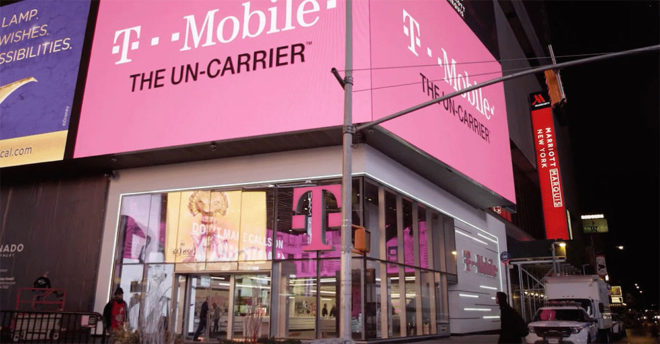NAD recommends T-Mobile modify advertising for Essentials plan

The National Advertising Division, part of the Better Business Bureau, weighed in on some claims against T-Mobile marketing this week.
The claims in T-Mobile advertising were challenged by Charter Communications and the first relates to T-Mo’s “four lines” pricing advertising. It was argued that consumers may have been misled that about an implied claim that they could purchase fewer than four lines at the same prices available to customers who purchase four lines.
However, the NAD argues that consumers understand the offer of “four lines” and know that that means that the price is only available when you buy four lines. Therefore, the NAD says that T-Mobile’s pricing advertising was not misleading about the price for one, two, or three lines and that T-Mo doesn’t need to make any additional disclosures about its pricing.
The second challenged claim relates to T-Mobile’s Essentials plan. With this plan, customers are prioritized lower than other T-Mo customers, which means their data may be slowed during times of network congestion. The implied claim that’s been challenged, though, is that Essentials customers get unlimited data without a reduction in speed because of advertising like “Unlimited talk, text, & smartphone data on our network.”
The NAD says that T-Mobile can advertise Essentials as “unlimited” so long as its prioritization policies are disclosed. However, the group feels that T-Mobile’s disclosures about Essentials do not explain why or when those customers may get slower speeds and that the disclosure that subscribers “may notice lower speeds” is something they already know, which is that data speeds can vary on a wireless network.
The NAD also feels that the advertising for T-Mobile’s unlimited plans, like this page that compares the plans, doesn’t explain the differences between the prioritization that Essentials customers are subject to compared to subscribers on other plans. This info is “especially significant when consumers are comparing plans,” the NAD argues.
After examining the challenged claims, the NAD recommends that when T-Mobile touts the Essentials plan, it should better explain its data prioritization policies so that customers understand why and when Essentials subscribers will experience prioritiation. The NAD also recommends that when T-Mobile more broadly advertises its unlimited plans, its disclosures should be broad enough to describe any data limitations on all of the unlimited plans.
T-Mobile said that it while it disagrees “with NAD’s conclusion that we should alter our existing disclosures concerning our Essentials Plan, we remain a strong supporter of the self-regulatory process and will take NAD’s recommendations into account in future advertising.”
This isn’t the first time that T-Mobile has had some of its advertising challenged and then reviewed by the NAD. Earlier this year, Charter took issue with some of T-Mo’s advertising related to TVision and the NAD recommended that T-Mobile make some changes to it as well.
Source: NAD
